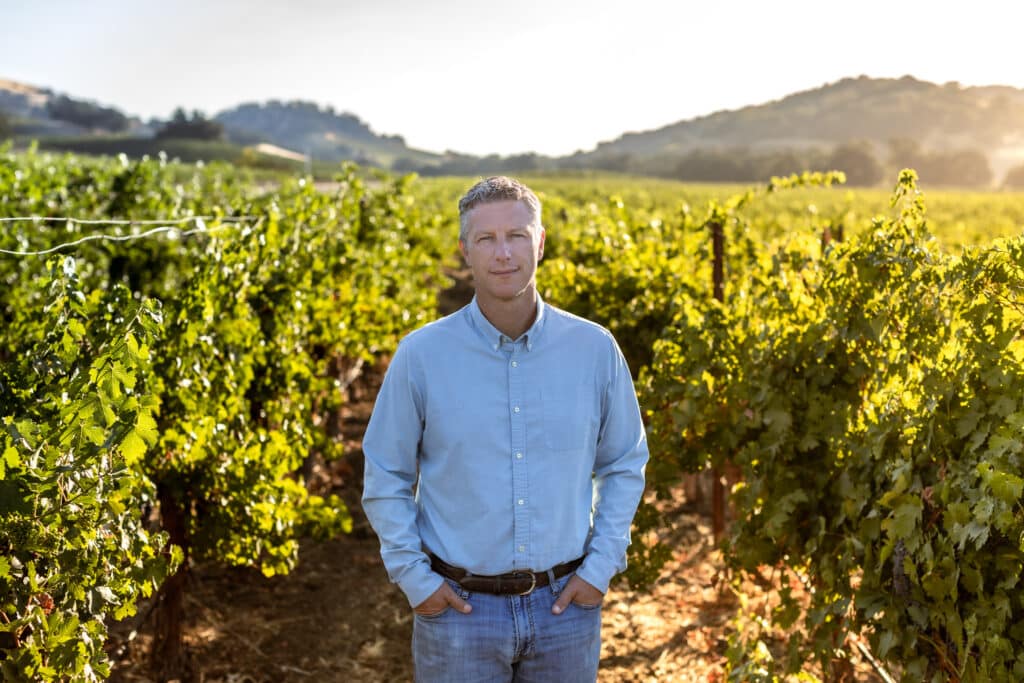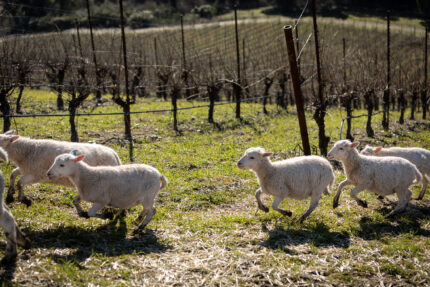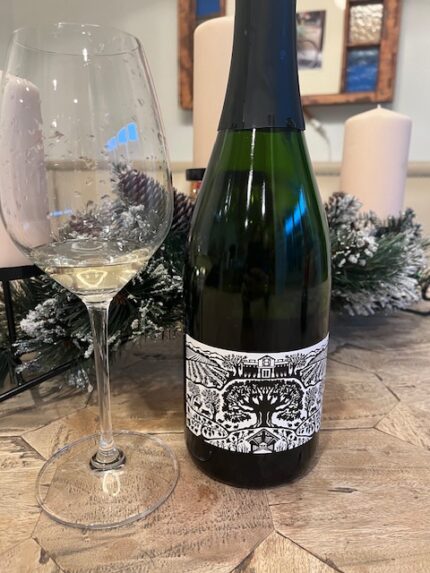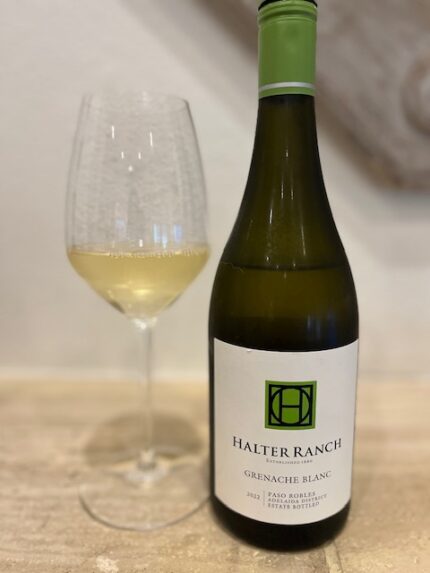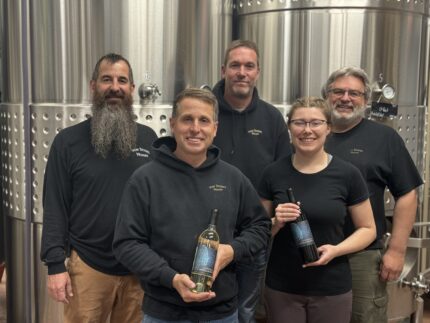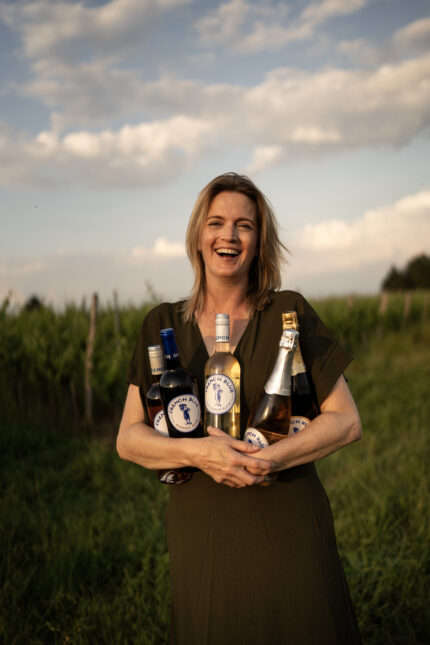I find great joy in recounting the narrative of transformation, particularly when a winery embraces a journey dedicated to improving our world. I had the pleasure of chatting with Kevin Sass, the Winemaker at Halter Ranch, delving into the winery’s sustainability efforts and exploring exciting new developments.
And a lot has happened since I spoke with Molly, the assistant winemaker, back in 2016 at a conference.
History
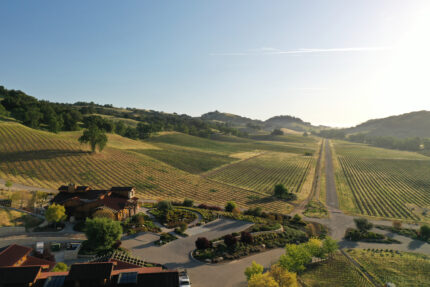
Let’s start with the story. Halter Ranch Winery, located in the Paso Robles wine region of California, has a rich history dating back to the 1800s. The property was originally established by Edwin Smith in 1880, then known as Smith Ranch, who built a grand Victorian farmhouse and planted vineyards. In 1943, the MacGillivray family took ownership and expanded the Ranch to include an airstrip and a hunting lodge. The region, known for its diverse soils and favorable climate, proved to be an ideal location for grape growing.
Undergoing numerous transitions, the property shifted ownership several times, transitioning from a cattle ranch to a grape-growing venture. In 2000, Swiss entrepreneur and conservationist Hansjörg Wyss acquired the property with a vision of transforming it into a world-class winery. Acknowledging the land’s potential for cultivating high-quality grapes, Wyss initiated an extensive vineyard redevelopment project, introducing a variety of grape types tailored to the diverse soils and microclimates of the region. The estate now hosts a diverse array of grape varieties, spanning from Bordeaux-style to Rhône-style varietals.
Halter Ranch Winery launched in 2000, and its first vintage was produced in 2002. Today it is a 2,700-acre nature estate and winery.
Sustainability
In July, the winery received certification for its vineyards from California’s Certified Organic Farmers (CCOF), an accredited organic certifying body that has strict guidelines and standards. It already was certified for its organic walnuts, olives, and its culinary garden. CCOF certification is a long-term commitment (it took three years to be awarded) to environmentally conscious agriculture with external measurements for preserving the health of the land, fostering biodiversity, and ensuring the well-being of consumers and the environment.
Halter Ranch is also certified for having USDA organic vineyards. The winery eliminated synthetic fertilizers, pesticides, and herbicides and replaced them with grazing sheep for weed abatement and fertilization. Natural predators and mealybug mating disruption are used for pest control, and the winery operates on 100% solar power.
The winery has a historic 19th-century Victorian farmhouse, which has been carefully restored. Halter Ranch has seamlessly integrated modern architecture and sustainable design into its facilities, including a gravity-flow winery that minimizes the need for pumps during the winemaking process.
Kevin told me that “preserving the environment while crafting the best wines possible was paramount while being responsible for the land and the future.” Currently, 90% of the winery’s acres are untouched, promoting soil health, and biodiversity. “We were always part of California’s SIP program, but three years ago we decided to do something more substantial.”
Those standards apply to any of the fruit purchased and currently, the winery has projects with Desert Willow Vineyards and YNot Vineyards and Texas and a tasting room and project in Temecula. Neither of the Texas wineries was on my radar when I wrote this article on Texas sustainability. I loved to find two brave Texas wineries started from the beginning,
Halter Ranch Temecula, formerly known as Hart Winery, is a family winery that chose to sell to Hansjörg because he believed he would be a good steward of the business.
And let’s talk about the sheep. A flock of 150 helps keep the grass and weed reduction under control so tractor passes aren’t needed. The sheep are at the vineyard year-round, and they raised the trellising system so they can’t get to the vines.
Kevin’s background
A Southern California native, Winemaker Kevin Sass’ wine career began in Paso Robles interning for the 2000 harvest at Justin Winery. He was hired by Justin as Grower Relations Manager until becoming the Winemaker in 2006. During that time, he worked with many Paso Robles vineyards, including Halter Ranch, and in 2011 Kevin joined Halter Ranch as the Winemaker after Justin was sold to a conglomerate.
Ten years ago, he added sparkling wines to the portfolio. In 2011, he did lots of trial and error as he grew his knowledge to make a good sparkling wine, and the team was excited to put a hold on the program. In 2015, he revisited the idea with Hansjörg that gave him the chance to try again. That year, they ¥ §made 200 cases and sold out. Today, he is fully committed to making 400 cases and believes in the future they could increase between 700 to 1,000 cases due to demand.
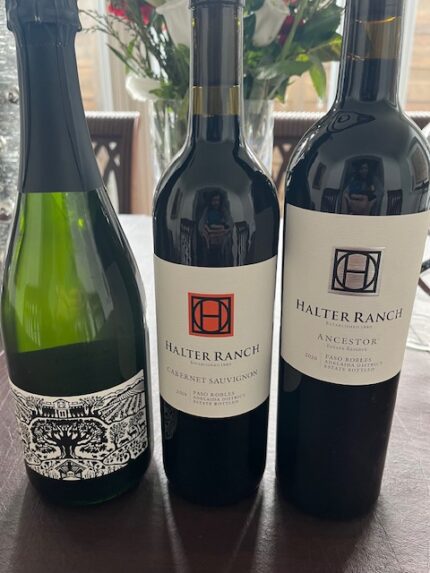
• 2020 Halter Ranch Libelle Sparkling Picpoul Blanc – made from 100% Picpoul Blanc grapes and vinified in the Methode Champenoise, where the secondary fermentation occurs in the bottle to create natural carbonation.
• 2022 Halter Ranch Grenache Blanc – I tasted pear, peach, a touch of honey, melon, and citrus. The minerality and layers of aromas made it an interesting and delicious wine.
• 2019 Halter Ranch Cabernet Sauvignon – notes of black cherry, blueberry, raspberry, pencil lead, and cocoa.
• 2020 Halter Ranch Ancestor Private Reserve – this is a blend 60 percent Cabernet Sauvignon, 23 percent Malbec and 17 percent Petit Verdot resulting in an elegant wine with notes of blackberry pie, blueberry, black pepper, herbs, leather, cocoa, and coffee.
Kevin told me that he didn’t want people to have to choose between Bordeaux blends and Rhone wines.
Halter Ranch’s story is about preserving, transforming, and dedicating itself to crafting wines that capture the essence and potential of the land. The vision led by Hansjörg Wyss and the winemaking team, utilizing sustainability practices alongside a variety of grapes, underscores the winery’s commitment to producing diverse wines. Halter Ranch sustains its success by embracing a balance of tradition, innovation, and an authentic regard for the land.
